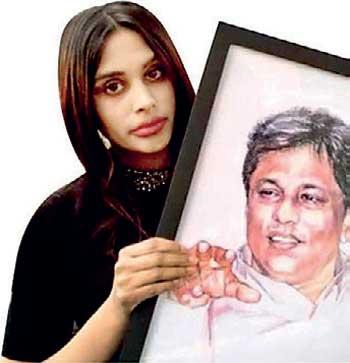06 Mar 2021 - {{hitsCtrl.values.hits}}
 By Nirmala Kannangara
By Nirmala Kannangara
Responding to an article by Ahimsa Wickrematunge published by the Washington Post newspaper on Wednesday, the Foreign Relations Committee of the United States Congress urged the new American Government to ‘reassert its leadership role on human rights and support calls for justice in Sri Lanka’, while stating that ‘freedom of the press is a fundamental principle of any democracy, as is accountability for those who commit atrocities’.
‘Escaping justice of the murder of a journalist deeply undermines both of these principles’, said the committee statement, released on Twitter on Thursday. Former Foreign Minister Mangala Samaraweera also praised Ahimsa Wickrematunge for ‘courageously continuing her fight for justice for her father,’ even ‘at a time when impunity has become the law of the land’.
On Thursday, Foreign Secretary Jayanath Colombage criticised the article as an attempt to destroy Sri Lanka. Meanwhile, Wickrematunge’s piece was widely lauded and cited around the world including by international journalists, rights activists and academic bodies such as the Human Rights Programme of the Harvard Law School.
“The coverup that followed my father’s death in 2009 was meticulous,” she wrote. “The autopsy report contradicted the hospital’s findings on cause of death. Investigators were threatened. Evidence was falsified and planted. Two innocent civilians who were framed for the attack were later shot, their bodies incinerated. Another was arrested and died in custody.”
After the change of Government in 2015, she said, police investigators soon zeroed in on a military death squad, the Tripoli platoon, that had allegedly been controlled by then Defence Secretary Rajapaksa’.
‘But when detectives exposed Rajapaksa’s role, their investigations were stymied. As far as the Sri Lankan judiciary was concerned, he was invincible. Judges broke with centuries of precedent to issue orders preventing his arrest. When a Court sought to question him over the killing of two human rights activists, a judge shut them down. When he was indicted for embezzlement, more judges stepped in to stop his trial going forward’.
Criticising the Government for the arrest of former CID Director Shani Abeysekara, whom she referred to as an FBI-trained police executive who ‘led breakthroughs in several emblematic investigations’, Ahimsa concluded that the election of this Government ‘has closed every door to human rights and accountability in Sri Lanka’.
Ahimsa recalled that in his 2009 self-written obituary, Lasantha Wickrematunge had written that ‘murder had become the primary tool for controlling the organs of liberty’, while warning that ‘twelve years later, those very same organs are on life support.’
“It is high time for the world to draw a red line at the killing of journalists and ensure that murderous autocrats pay a price,” she wrote. ‘But today, as I watch the killers of heroes like Anna Politkovskaya, Jamal Khashoggi and my father rub shoulders on the world stage, it seems that killing a journalist is just another rite of passage for emerging autocrats’.
18 Apr 2024 43 minute ago
18 Apr 2024 2 hours ago
18 Apr 2024 3 hours ago
18 Apr 2024 4 hours ago